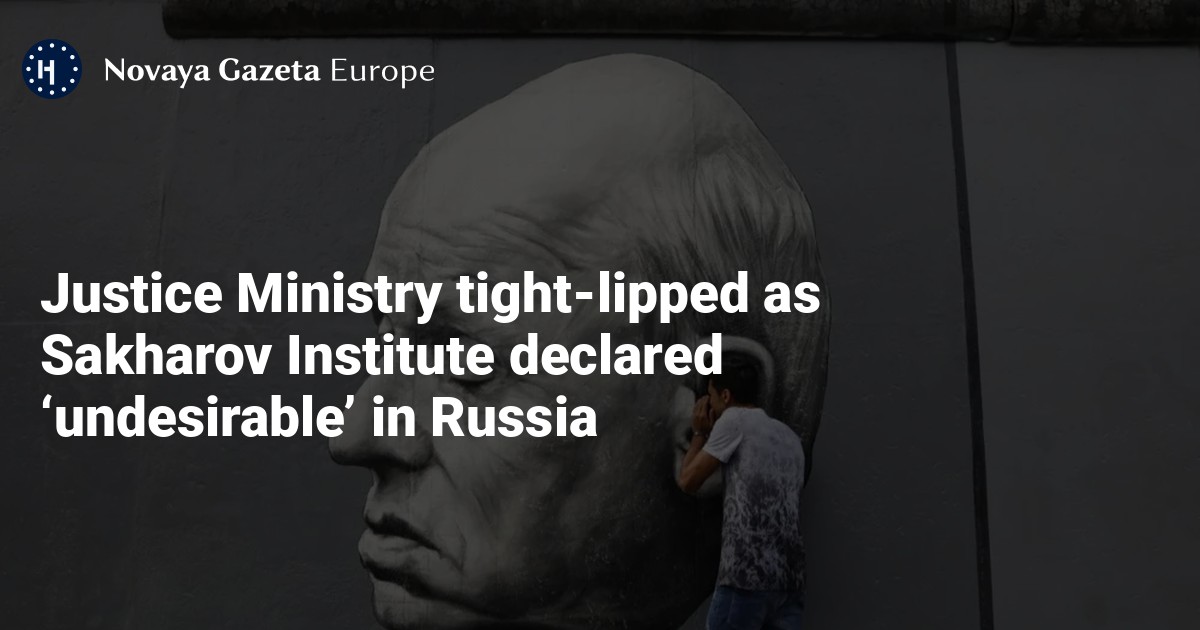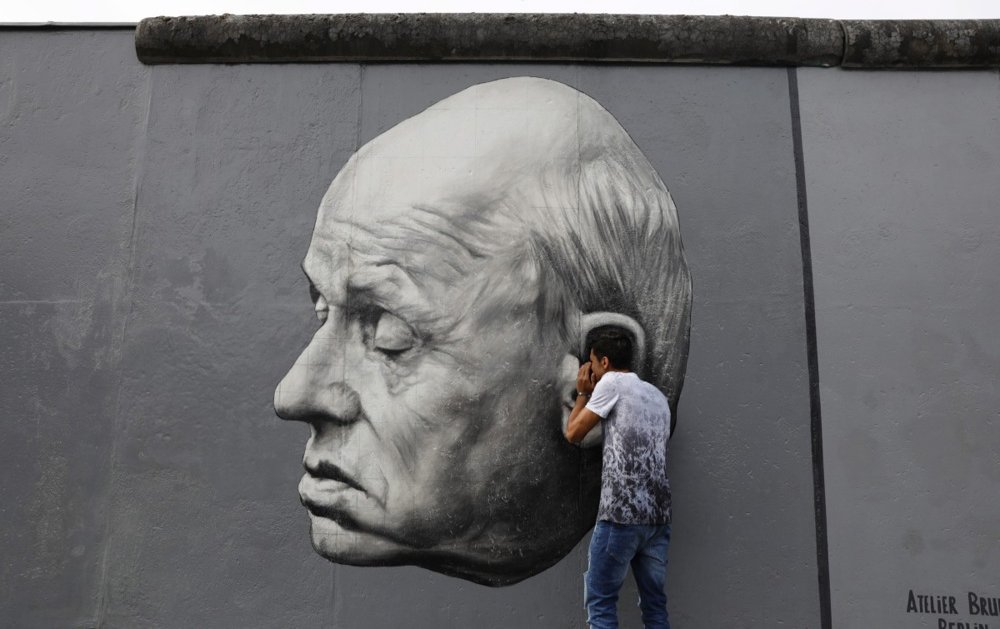




A tourist poses in front of the artwork Thank You Andrei Sakharov by Russian artist Dmitri Vrubel at the East Side Gallery in Berlin, Germany, 19 August 2017. Photo: EPA/ABIR SULTAN
The Russian Justice Ministry has added the Andrei Sakharov Institute to its list of “undesirable” organisations, human rights group OVD-Info reported on Thursday.
The institute appeared on the ministry’s list on Tuesday, though the ministry did not explain its decision. The Sakharov Peace Progress Human Rights civic movement appeared on the list of “undesirable” organisations at the same time.
In Russia, any organisation deemed “undesirable” by the government is legally obliged to dissolve itself, and any involvement in its activities becomes illegal.
The Andrei Sakharov Institute was founded in Paris by the politician and human rights activist Lev Ponomaryov, a former confidant of the dissident scientist, when he fled Russia in 2022. The organisation provides assistance to Russians who have faced persecution as well as political refugees and deserters.
Ponomaryov also established the Sakharov Peace Progress Human Rights civic movement after Russia launched its full-scale invasion of Ukraine. It brings together anti-war human rights defenders, activists, politicians, journalists and representatives of other professions, OVD-Info notes.
Sakharov was a Soviet nuclear physicist turned human rights activist who won the Nobel Peace Prize in 1975 as a “spokesman for the conscience of mankind”. Persecuted by the Soviet authorities for his activism, he was allowed out of internal exile by Mikhail Gorbachev in the early glasnost and perestroika era in 1986. He died in Moscow in 1989.
